
February 2018 – A Day of Small Things has been going almost five years. It is time to take stock, see what the Lord has prospered and what He has not, see what Christians have shown interest in. It is also time to brighten things up. I hope you like the changes. Please email me, sosthenes@adoss.co.uk , to suggest improvements.
-
- I’ve changed the template. I hope the new one is cleaner, brighter and easier to follow.
- I’ve added a drop down menu at the top, like many other similar sites.
- I’ve made some changes to improve ‘SEO’ so more find the site. However the best way of increasing is introduction. I’ve made it easier to do this. Here it is.
- I’ve switched from Bible Hub to Ministry Search Engine for the scriptures. This shows the KJV and Darby versions in columns, like the 1890 Parallel Edition. I will still use Bible Hub for the Greek original etc. I will also use Ministry Search Engine for the ministry of JND and others.
- Instead of ‘For Christians in Perilous (or Dangerous) Times, I’ve added, ‘Who are waiting for Jesus’ Call at the Rapture.’ This reflects a change of outlook – from the negative side (still necessary) of judging the errors of ‘systematised Christianity’ to the positive enjoyment of gathering simply, as at the start of the dispensation, as they turned ‘to serve the living and true God; and to await his Son from the heavens, whom he raised from among the dead, Jesus, our deliverer from the coming wrath’ (1 Thess 1:9-10). Those who moved out of ‘system’ in the early 1800’s, experienced the same. What gripped them was the Head in heaven (Eph 1:22) and His body here (Eph 5:30), and the imminence of His coming to rapture His own (1 Thess 4:16), shortly thereafter to return to reign with us, His saints (1 Thess 3:13). His coming is much nearer now!
- Whilst I will continue with simplified summaries, I have embarked on a new approach – J N Darby by Subject – looking at a subject, finding everything he had to say about it, then selecting portions, grouped in a logical way. The first subject was ‘The Passover’; the second ‘The Red Sea’. With each subject I plan, with the Lord’s help, to write a single document covering Darby’s teaching on it. I trust readers will find these useful and helpful
This process will take time – you will see the changes.
You will remember my letter last month: ‘The Lord’s Coming – Is that REALLY our Expectation?’ This was following an address in December on the Lord’s return. How much better it is to be occupied with this, than with all the problems which beset Christians.
As J N Darby, who had his share of battles for the Lord, wrote in his poem ‘Fulness of Joy’
| 1. O, bright and blessed hope! When shall it be That we His face, long loved, Revealed shall see?2. Oh! when, without a cloud, His features trace, Whose faithful love so long We’ve known in grace;3. That love itself enjoy, Which, ever true, Did in our feeble path Its work pursue? 4. O Jesus, not unknown, 5. Still, Lord, to see Thy face, |
6. To gaze upon Thyself, So faithful known, Long proved in secret help With Thee alone;7. To see that love, content, On me flow forth, For ever Thy delight, Clothed with Thy worth!8. O Lord, ’twas sweet the thought That Thou wast mine; But brighter still the joy That I am Thine! 9. Thine own, O Lord, the fruit, 10. Of evil e’er will dim |
11. Nor what is next Thy heart Can we forget – Thy saints, O Lord, with Thee In glory met,12. (Perfect in comeliness Before Thy face – Th’eternal witness all Of Thine own grace),13. Together then their songs Of endless praise, With one harmonious voice, In joy shall raise! 14. O joy supreme and full, John Nelson Darby (1800-82) Written 1879. Most of the above are in Hymns for the Little Flock 1962 and 1973 – No 160. Meter 6.4.6.4. usually sung as 6.4.6.4.D. |
May you be blessed
Your brother in Christ
Sosthenes
 PS We heard today of the home-going of the renowned evangelist Billy Graham. Some may have criticised his methods, but we can be thankful for the thousands who have come to know the Lord through his ministry. Let’s not forget to do the work of an evangelist.
PS We heard today of the home-going of the renowned evangelist Billy Graham. Some may have criticised his methods, but we can be thankful for the thousands who have come to know the Lord through his ministry. Let’s not forget to do the work of an evangelist.

 An elderly sister had spoken to him recently, and said how she woke up during the night with troubles on her mind, especially those amongst the Christian group she was with. But there were others – the world, her family, herself – particularly her health. Then she said “Wouldn’t it be great if I woke up thinking, ‘This is the day the Lord is going to come!’ Wouldn’t that make a great difference to the day – and to me?”
An elderly sister had spoken to him recently, and said how she woke up during the night with troubles on her mind, especially those amongst the Christian group she was with. But there were others – the world, her family, herself – particularly her health. Then she said “Wouldn’t it be great if I woke up thinking, ‘This is the day the Lord is going to come!’ Wouldn’t that make a great difference to the day – and to me?”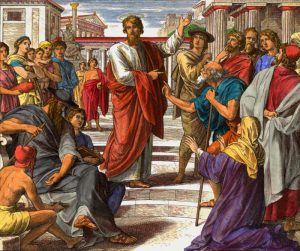

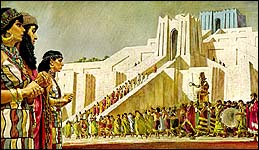
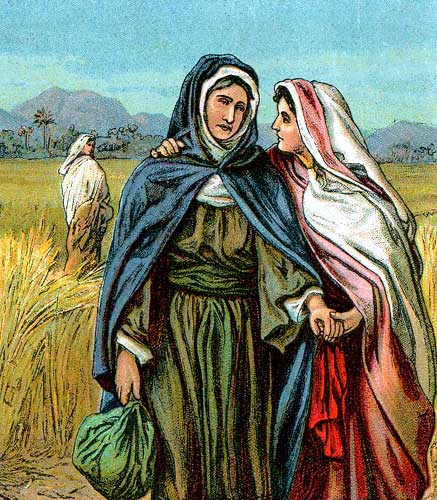
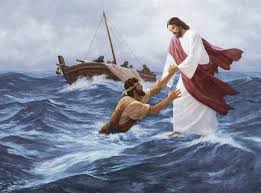
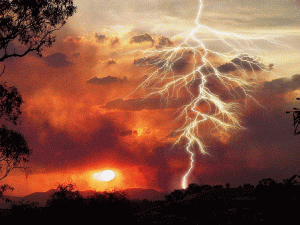

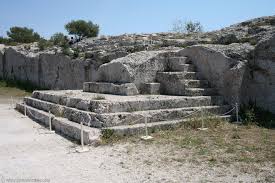 it on a slightly raised platform and would adjudicate. For example he would judge the games, disqualifying cheats and giving prizes (usually a crown wreath of leaves) to the first, second and third places. It is also like a tribunal, before which my namesake Sosthenes was beaten in Corinth (see
it on a slightly raised platform and would adjudicate. For example he would judge the games, disqualifying cheats and giving prizes (usually a crown wreath of leaves) to the first, second and third places. It is also like a tribunal, before which my namesake Sosthenes was beaten in Corinth (see 